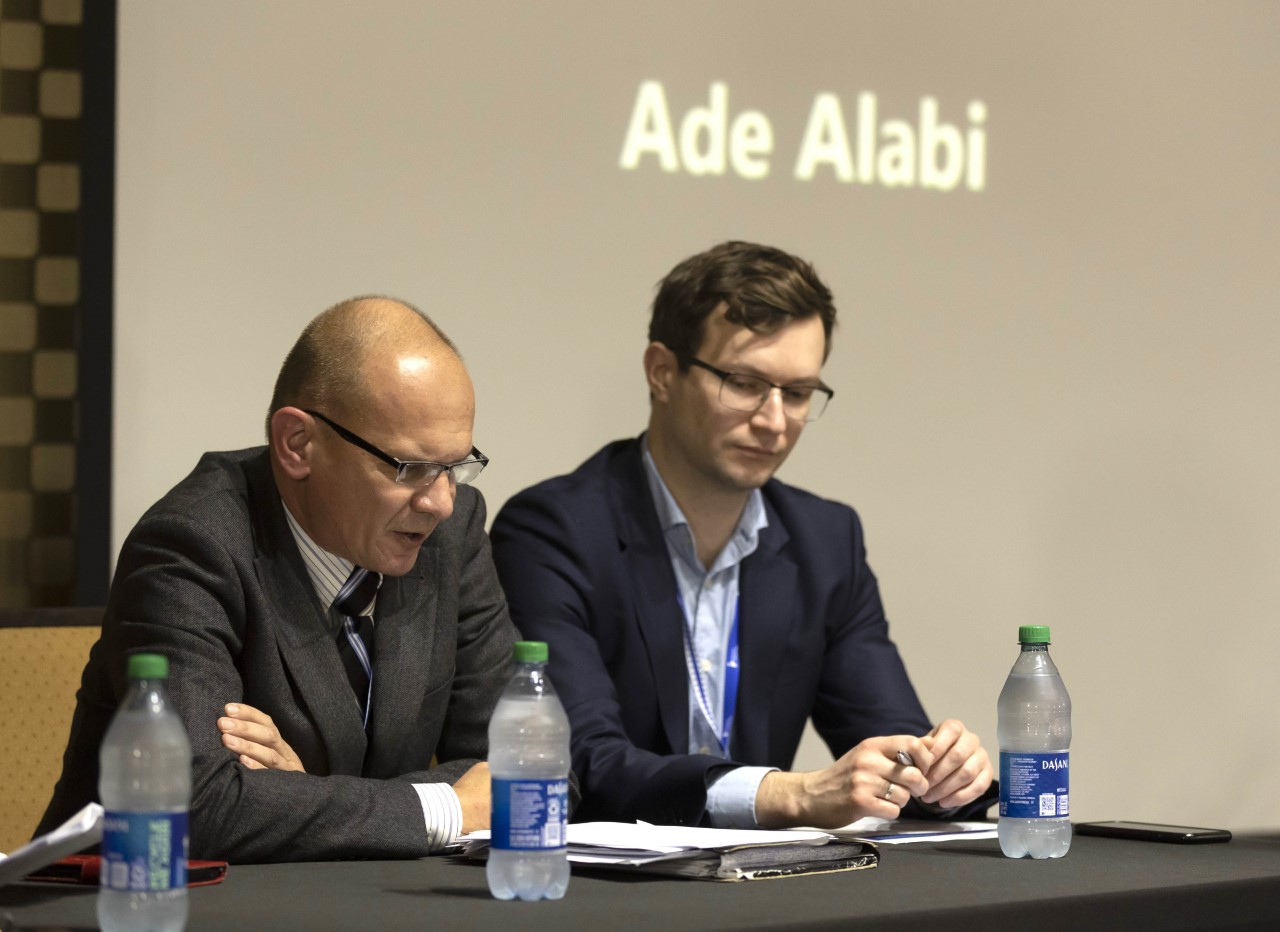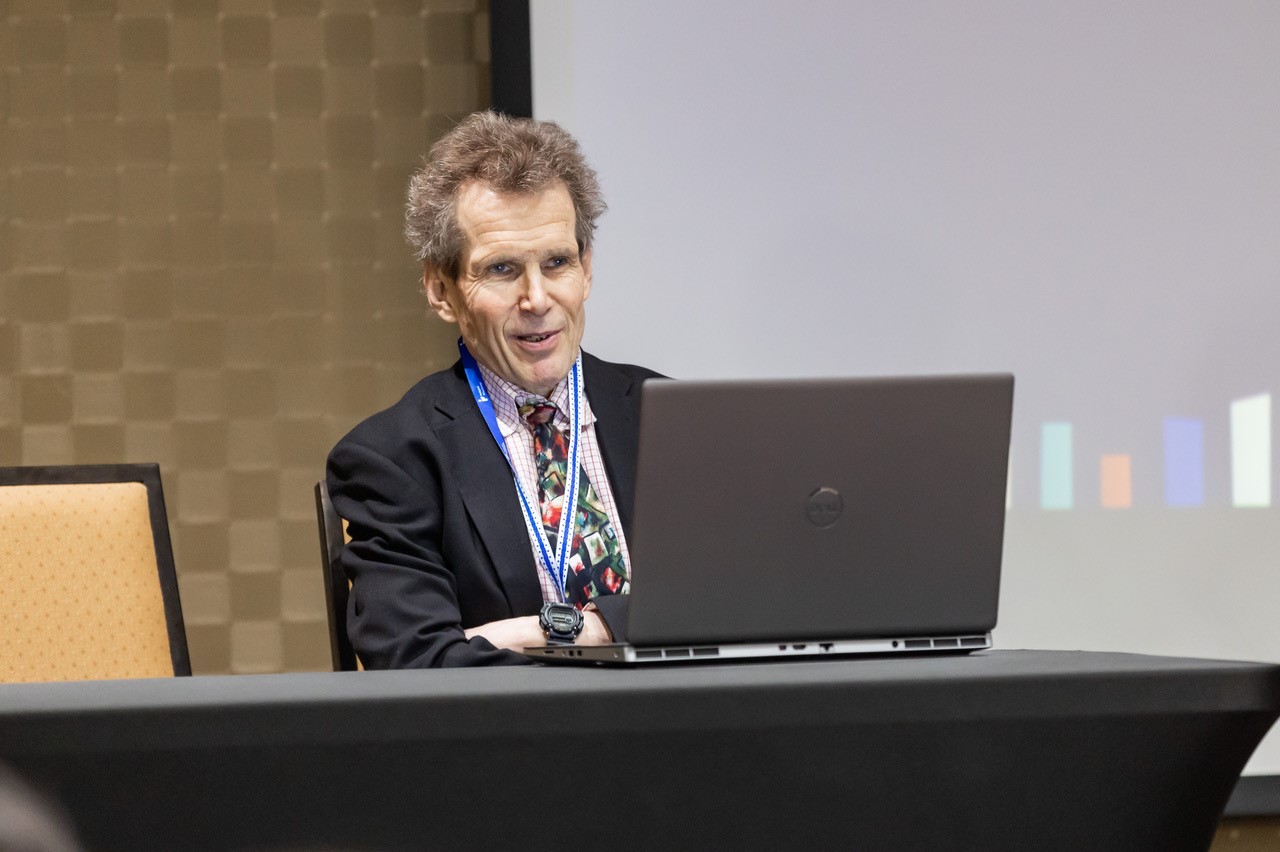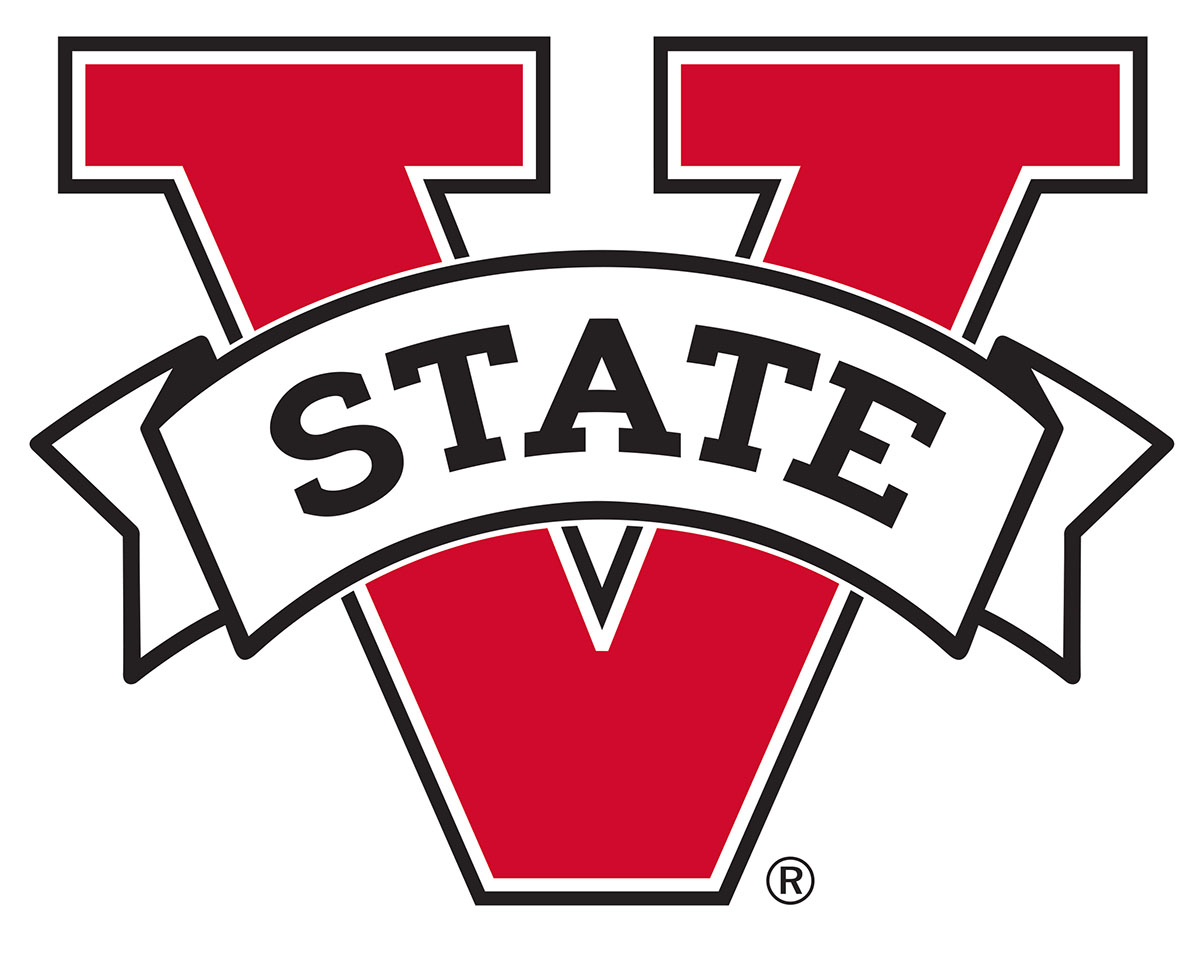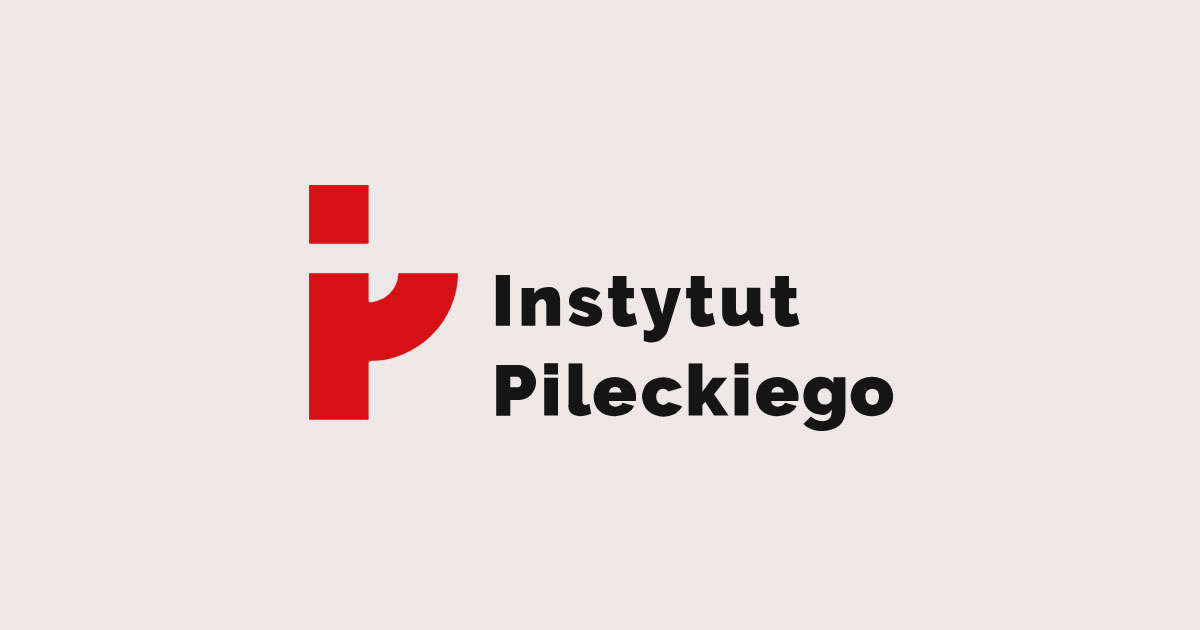December 7, 2022
22-176
Jessica Pope
Communications and Media Relations Coordinator
VSU Brings International Scholars to Campus to Discuss Totalitarian Systems

|
|
Valdosta State University’s Department of History recently collaborated with the Pilecki Institute to bring scholars from Poland, Azerbaijan, Ukraine, Turkey, Qatar, Italy, Nigeria, and the United States together to discuss totalitarianism and political repression. The two-day conference was organized by Dr. Sebastian Bartos, associate professor of medieval and early modern history at VSU and coordinator of the Pilecki Institute’s Graduate Academy in the United States.
|
VALDOSTA — Valdosta State University’s Department of History recently collaborated with the Pilecki Institute to bring scholars from Poland, Azerbaijan, Ukraine, Turkey, Qatar, Italy, Nigeria, and the United States together to discuss totalitarianism and political repression.
The Pilecki Institute, based in Warsaw, Poland, facilitates research and education on the rise, operation, and consequences of the Nazi and Soviet totalitarian systems and state terror.
Dr. Sebastian P. Bartos, associate professor of medieval and early modern history at VSU, said the collaboration began two years ago when he was named coordinator of the Pilecki Institute’s Graduate Academy in the United States, an international educational project focused on Nazi and Soviet totalitarian regimes. He said the project was interrupted by the global health crisis known as COVID-19; however, it resumed this year.
VSU’s two-day conference, Totalitarianism Across History and Disciplines, featured a variety of conversations — Postwar Justice and the Prosecution of War Crimes in Poland; The Totalitarian State: History Versus Memory of the Soviet Repressions; Dimensions of Authoritarianism and Totalitarianism; Totalitarianism and Communism; The History Never Ends: Totalitarianism, Authoritarianism, and Dictatorships in the 21st Century; and The Concentration Camps in the Totalitarian Regimes. A roundtable event invited students to discuss whether or not Totalitarian Regimes in the 20th Century was still an important topic.
VSU: What was the purpose of this two-day conference at VSU and why does it matter?
Bartos: The conference marked the conclusion of the Pilecki Institute’s international educational project Totalitarianism in East-Central Europe 1939–1989: History and Memory. The aim of the program was to promote awareness of political repression and the history of the totalitarian systems. It brought an international group of graduate students and established scholars to Valdosta and placed our university on the map of prime international academic events.
VSU students had an opportunity to attend lectures and discussion sessions on various aspects of political violence and state terror, both still dramatically affecting people around the world. The conference was accompanied by an exhibition — Lemkin. Witness to the Age of Genocide — dedicated to Raphael Lemkin, the author of the United Nations Genocide Convention, the first international human rights treaty after the Second World War. Learning about brave and educated individuals who, with determination, actively responded to the problem of violent authoritarian governments and sought punishment for political crimes is always an invaluable experience. It positively shapes our civic sensitivity and inspires us to practically utilize our knowledge to defend freedom.
VSU’s Dr. Alan Bernstein, dean of libraries, and Dr. John Dunn, Department of History professor, provided assistance in organizing the Institute's history exhibition that accompanied the conference.
VSU: How does this type of event impact student learning at VSU?
Bartos: VSU students voluntarily attended various sessions during the two days of the conference. Most of them were history majors. The students' insightful and pertinent questions and comments reflected their intellectual maturity and academic interests.
This international conference offered VSU students a unique opportunity to learn about major historical as well as practical political problems in the modern world. Some also wrote formal summaries of chosen presentations for an extra academic credit — a good practice in critical thinking. The lectures and debates exposed those who major in humanities and social sciences to professional scholarship and the craft of formulating sophisticated arguments.
On the Web:https://www.valdosta.edu/history/
https://instytutpileckiego.pl/en/instytut
Newsroom
- Office of Communications Powell Hall West, Suite 1120
-
Mailing Address
1500 N. Patterson St.
Valdosta, GA 31698 - General VSU Information
- Phone: 229.333.5800
- Office of Communications
- Phone: 229.333.2163
- Phone: 229.333.5983


